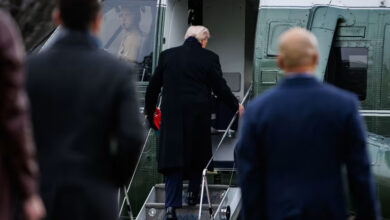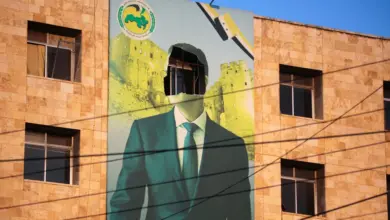
Syrian opposition figures and Gulf commentators dismissed on Wednesday a Russian draft proposal for a process to solve the Syrian crisis, saying Moscow's aim was to keep President Bashar al-Assad in power and marginalize dissenting voices.
A draft document obtained by Reuters on Tuesday showed Moscow would like Damascus and unspecified opposition groups to agree on launching a constitutional reform process of up to 18 months, followed by early presidential elections.
Russia, which with Iran has been Assad's top ally during Syria's nearly five-year conflict, has denied any document is being prepared before a second round of international peace talks in Vienna this week.
The text, obtained by Reuters, does not rule out Assad's participation in early presidential elections, something his enemies say is impossible if there is to be peace.
"The Syrian people have never accepted the dictatorship of Assad and they will not accept that it is reintroduced or reformulated in another way," said Monzer Akbik, member of the Western-backed Syrian National Coalition.
"The Russians are now trying to play the game they have been playing since Geneva," he told Reuters, referring to United Nations-led peace talks that collapsed in 2014.
Russia began airstrikes in Syria six weeks ago after insurgents edged closer to government-held areas vital to Assad. It has also stepped up its diplomatic efforts to resolve the conflict that has killed hundreds of thousands and displaced millions.
Hadi al-Bahra, a member of the coalition's political committee, said the main problem was Assad and any political process needed to tackle this with assurances and guarantees.
He also dismissed the idea of holding elections under the current system. "How can the elections be fair when the citizens inside Syria are afraid of retaliation from the security services of the regime?" he said.
The United States, its allies in the Gulf Cooperation Council and Turkey, who have backed the uprising against Assad, have also all said he must leave power for there to be peace.
"The Russians are basically trying to wiggle out of Geneva," said Mustafa Alani, director of defense and security at the Gulf Research Centre (GRC) think tank. "So it is the question of he can stay: it's a red line for all the Gulf Cooperation Council. Absolutely a red line. This is something that won't be a negotiable issue."
"Trial balloon"
Saudi Arabia is one of Assad's most strident opponents and Foreign Minister Adel al-Jubeir has said he must be removed from power as part of a solution.
Saud Humaid Assubayii, security affairs committee chairman at Saudi Arabia's appointed Shura Council, said the proposal was flawed because it did not rule out Assad's participation in elections.
Speaking in a personal capacity, he said the Syrian president should not be able to stand because "he killed hundreds of thousands of his own people" in the war.
"He should not be put back. I don't think it's in the interest of Syria. I don't think it's in the interests of the region. It's only in the interest of a small group of people, of a very small minority," he said.
A Western diplomat said the Russian document appeared to be "a trial balloon" to test international reaction, and also to calm any uneasiness among Assad's entourage.
A more likely focus of discussion in Vienna would be the issue of who was a terrorist, the diplomat said, an element also referred to in the text. The Russian foreign ministry spokeswoman said on Tuesday that Moscow would be concentrating on this at the meeting.
Asked if the Russian proposal for an 18-month transition in Syria came up in closed-door Security Council consultations on Tuesday, British UN Ambassador Matthew Rycroft, president of the council for November, said:
"That issue did not come up in the consultations, but we’re aware of the Russian proposals and, speaking nationally, we have been in contact with them and others about them."
Sources close to Damascus and diplomats say Russia and Iran have told Syria they will use the Vienna talks to shore up the government's position and resist any solution that forces Assad out of office.
A senior Syrian official last week rejected the idea of a "transitional period" leading towards the removal of Assad, as sought by Western states.
"The Russians and the Iranians agree with each other on the topic of commitment to Assad – this commitment is final," a source close to Damascus said.
Russian President Vladimir Putin gave Assad such assurances in Moscow last month, the source said, in an account echoed by two diplomats briefed on the meeting.
But one diplomat said the Russians had also expressed frustration in the past with Assad for not accepting limited political reforms, something Moscow thinks will be necessary as part of a political process.
"The Syrian leadership lives in a reality of its own. They feel not only reassured by the Vienna statement but felt they could dictate it and feel they can get around the difficult parts," the diplomat said.
Another diplomat said some Syrian officials had expressed concern, before the Vienna talks, about Damascus being outside the diplomatic process. The talks included more than a dozen states but not Syria or the opposition.
"They know Russia would have many reasons to make a bargain with the West and the biggest piece Russia has in its hand in the Middle East is Syria."




